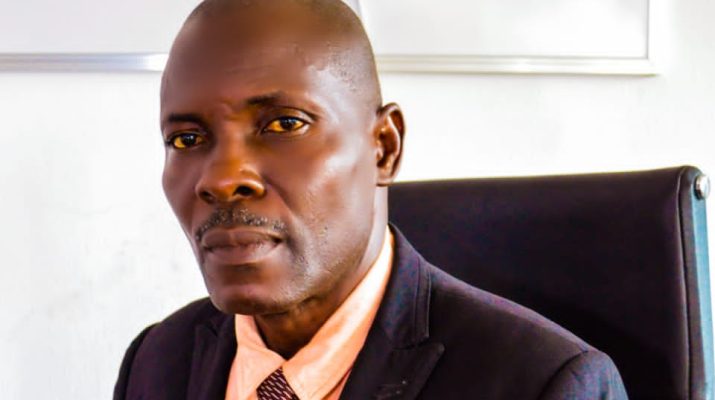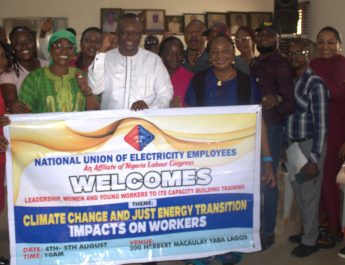The annual lecture of the Maritime Reporters Association of Nigeria (MARAN) continues to receive huge support from high profile stakeholders for the 2025 edition, even as the Nigerian Navy backs the Association in the push for Nigeria to be removed from the War Risk Insurance list
By Innocent Chukwu
The Maritime Reporters Association of Nigeria (MARAN) has announced a new date and venue for its annual maritime lecture commonly referred to as MAMAL. The 2025 event which was earlier scheduled for August 28 at the Eko Hotel, Victoria Island will now hold on August 27, 2025 at the Four Point by Sheraton Hotel, Victoria Island Lagos.
As a major boost to this year’s event, the Minister of Marine and Blue Economy, Adegboyega Oyetola, Tantita Security Services Limited and Maritime Security Providers Association of Nigeria (MASPAN) among other top industry stakeholders have confirmed their participation during the event.
A statement by the organizing committee, said the list of expected stakeholders also includes frontline maritime lawyers, Mrs. Funke Agbor and Dr. Emeka Akabogu who will deliver the keynote address.
The Chief Executive Officer of LeLook Bags, Chief (Mrs) Chinwe Ezenwa and Port Terminal operators will also be part of the lecture.
Speakers at the MAMAL 2025, will include Barr. Temisan Omatseye a former Director General of the Nigerian Maritime Administration and Safety Agency (NIMASA), representatives from NIMASA, the Nigerian Navy and international maritime bodies who have since confirmed their attendance.
Other industry associations expected to be at the event include, the Nigerian Trawler Owners Association (NITOA), Africa Shipowners Association (ASA), the Nigerian Shipowners Association of Nigeria (SOAN) and the Nigerian Shipowners Association (NISA).
The MAMAL 2025 edition will come with the theme, “Addressing the Burden of War Risk Insurance on Nigerian Maritime Trade”, and will focus attention on the imposition of Extra War Risk Insurance (EWRI) on vessels trading in Nigeria and the Gulf of Guinea.
The lecture will also feature strategic dialogues on maritime security, the impact of global shipping insurance practices, and the way forward for stakeholders in shipping, fishing and broader maritime businesses.
The MARAN’s upcoming lecture is expected to bring together over 500 participants, including ship owners, terminal operators, insurers, legal practitioners, maritime/shipping regulators, naval personnel and diplomats.
According to MARAN President, Godfrey Bivbere, “The Summit will explore issues leading to the classification of the nation’s waters as “high-risk zones”, roles of classification societies like the Lloyds of London, NIMASA, the Navy and other security operators”.
Meanwhile, the Nigerian Navy has backed MARAN’s push for the removal of Nigeria from the War Risk Insurance list. The Flag Officer Commanding (FOC) Western Naval Command of the Nigerian Navy, Rear Admiral Michael Gregory Oamen, said keeping Nigeria on the list of countries subjected to War Risk Insurance Premiums by international shipping and insurance companies can no longer be justified. The naval chief said such act remains unjust and unsubstantiated.
Oamen made this known on Wednesday, August 6, 2025 during a courtesy visit by executives of MARAN and members of the planning committee of MAMAL 2025.
According to the FOC, Nigeria has recorded over three years of piracy-free waters, particularly in the Gulf of Guinea, and has invested heavily in maritime security infrastructure and international collaborations to ensure the safety of its maritime domain.
“There is absolutely no reason why Nigeria should still be on any war risk list. For the past three to four years, there has been no piracy incident in our waters. This continued classification is unjustifiable”, Oamen said.
He attributed the country’s improved maritime safety to robust naval presence, surveillance systems such as the Falcon Eye, and strategic partnerships with other navies within the region.
He called on MARAN to escalate the matter by writing to the Federal Ministry of Foreign Affairs and engaging other key agencies such as NIMASA, the Nigerian Ports Authority (NPA), and the Nigerian Shippers’ Council.




